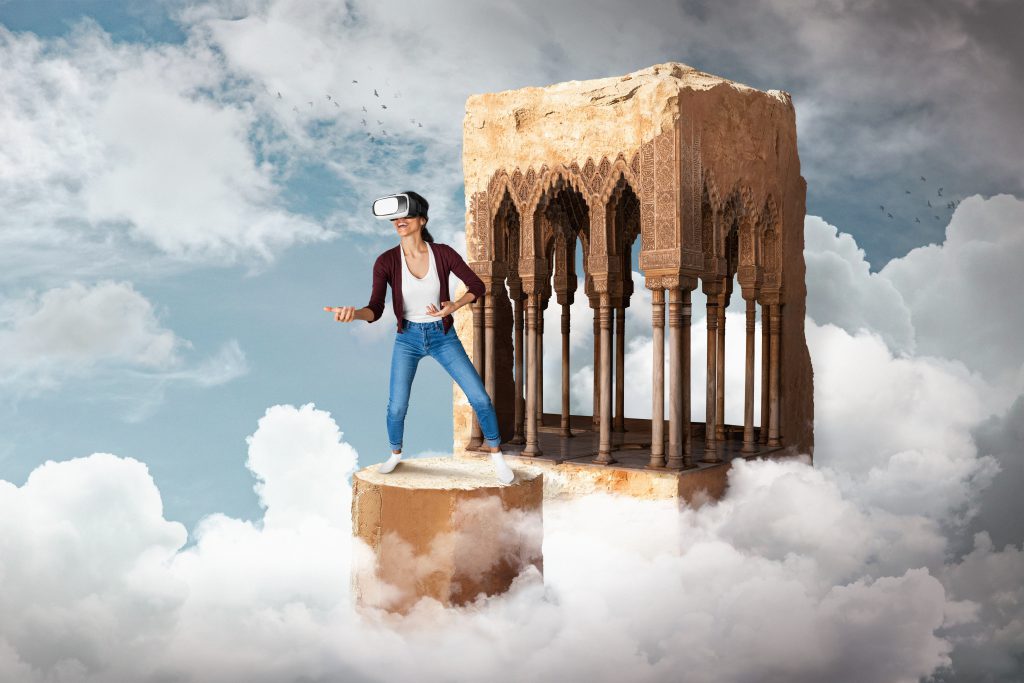As internet technology evolution goes through its next iteration with the Metaverse coming into its own in the past few years, there is a great deal of excitement in the tech world about its potential and possibilities.
With Metaverse gaining traction, developers and companies are finding novel ways of applying it to real-life use cases facilitating the industry’s growth at an exponential rate.
Enterprise Metaverse use cases – Travel & Tourism
The Metaverse offers innovative opportunities to businesses. Here are some use cases in the Travel and Tourism industry.
Travel and Tourism
The tourism sector has suffered its greatest setback in the wake of the COVID-19 pandemic.
But with the promise of Metaverse, travel, and tourism companies are pivoting their strategies to provide novel and unique holiday experiences.
AR and VR for Virtual Tourism
The metaverse immersive experience uses AR and VR technologies to create a virtual holiday experience for users who are unable to travel to their chosen destinations.
The metaverse will allow people to travel to any part of the world irrespective of their physical location, and their well-being, and eliminate the time, effort, and expense spent on actual travel.
Digital avatars allow tourists to have an interactive traveling experience that comes to the physical world by exploring destinations with fellow tourists and moving together as a group.
Through the creation of virtual theme parks, virtual museums, and virtual zoos customers can enjoy an experience that is like the one that they would enjoy in real life. Besides, the hassles and costs associated with real-life museums, parks etc., can be avoided.
Digital avatars allow tourists to have an interactive traveling experience similar to the physical world by exploring destinations with fellow tourists and moving together as a group.
Google Earth VR, Overview Collection’s Escape Now, and Immerse from the Hydrous are examples of immersive tours and virtual travel experiences.
Use of VR to boost sales
The tourism industry can leverage Virtual Reality capabilities to boost real-world tour site sales too. Thomas Cook commissioned Visualise for its ‘Try before you Fly’ Campaign to produce a series of immersive 360 VR films. Potential tourists visited holiday destinations in virtual reality using Samsung Gear VR allowing them to decide whether they actually wanted to do a trip in real-time. The results were truly amazing, with a 190% increase in New York Excursion bookings after viewing the 5-minute VR holiday version.
Travel World VR offers immersive experiences to potential tourists by letting them try out accommodations and destinations before they book real-world tickets.
Agents and hotels encourage their clients to book their trips and holiday stays on Platforms like SkyNav and Amadeus that offer a VR experience where the clients get a 360-degree view of their hotels or holiday destinations, leading to an increase in reservations.
Visitor Experience at Online Trading Shows
Metaverse can help enhance visitor experience at trade shows, expositions, exhibitions with a greater sense of immersion through social interactions using digital avatars.
Virtual Booking process
Instead of using a traditional computer or a touch screen to make a booking, VR headsets can enable the entire booking process where potential customers can visit the hotel virtually. They can explore its facilities and make the booking all through the VR headset providing a smooth, convenient, and fast experience.
Conclusion
Metaverse has created a new and unique world full of possibilities and opportunities for a diverse variety of businesses. Although the early adopters might need to prepare for the challenges it presents currently, they will certainly gain a competitive edge by leveraging the immense potential of this field.

